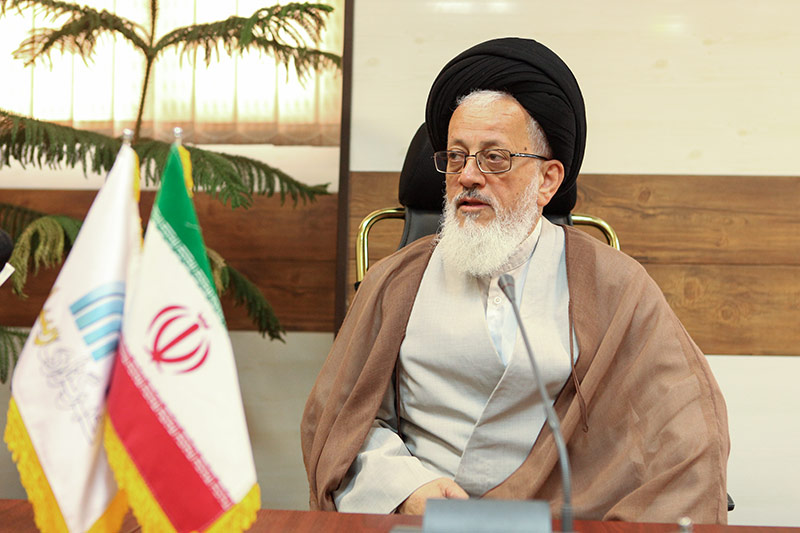
RNA – In an exclusive interview with Rasa News Agency, Ayatollah Sayyed Mojtaba Hoseyni referred to the cultural situation in Iraqi holy city of Najaf, saying, “Before going to Najaf, I consulted many people who said that it was very difficult to be active in Najaf but after living there, I witnessed that it was very simple and, in my three years of open activities, there has been no negative reaction. Either there is no opposition in Najaf, and if there is, they can not create any problems.”
The representative of the Supreme Leader of Iran’s Islamic Revolution [Ayatollah Sayyed Ali Khamenei] in Iraq, said, “Everyone must know that the Supreme Leader of the Revolution, the sources of emulation and the Islamic Republic want the best for Najaf and Iran’s investment is in done with a sense of responsibility and the verses of the Holy Quran clearly state that our defense must not be confined to ourselves.
“In the field of cultural defense, equipping the culture of foreigners is the responsibility of the Islamic Republic, the scholars, seminarians and the Islamic Seminary and such activities are the responsibility of the Islamic Republic,” he stated.
Ayatollah Hoseyni explained that Saddam Husayn worked hard to silence the Islamic Seminary of Najaf but he failed and it has been grown quickly after the overthrow of Saddam. During Saddam’s time there were between 200 and 500 students in the Islamic Seminary of Najaf but today, there are more than 12,000 students.
The Iranian cleric said, “Many of the teachers in Najaf had studied in Qom for several years and now, they have returned to Najaf. This isn’t a matter of concern but our discourse must be such as to show that there is no intention of disruption and any increase in our harmony will be utilised further. In particular, in today’s society where the Shi’ahs are in a minority, if they are in harmony with one another, their reasonable power will have a beneficial effect on the Shi’ah world, the Islamic world and above that world of humanity because our message is humanity.”
His Eminence added, “In Najaf, there are two seminaries named after Imam Khomeyni and there is also a seminary named Madrassah al-Wilayah. Also, there are more than eight schools in all of Iraq named after Imam Khomeyni. More than 90% of the youth are fighters in the Popular Mobilization Forces and love Wilayat al-Faqih. When I’m present among the tribes and nomads, I’m welcomed and they praise the Supreme Leader of the Revolution.”
Ayatollah Hoseyni added, “We also say in our speeches that Wilayat al-Faqih is not a part of others but rather, all are gathered together under one flag and there are no disagreements and conflicts between the Supreme Leader and other sources of emulation.”
He said that some were not attentive to the political nature of the Shi’ah-Sunni conflict and noted, “Despite the efforts that the United States had made before the formation of Daesh in order to create disagreement between Shi’ah and Sunni Muslims, today the Sunni people have a good relationship with the Shi’ah and Sunni scholars receive us well. Even the worshippers in some of the mosques that I went to welcomed me without any knowledge that I was Shi’ah and when they realized that I was a Shi’ah cleric, they also invited me to speak. In many Sunni mosques, turbahs are available so that the Shi’ahs face no difficulties in prayer.”
Ayatollah Hoseyni added that there must be stronger relations between the Islamic Seminaries of Qom and Najaf and that those who go to study in Najaf must not have any type of competition.
“In this case, the plans of the enemies, who want to create dissension between Qom and Najaf, will be thwarted,” he stressed.
Rasa News Agency
112/971